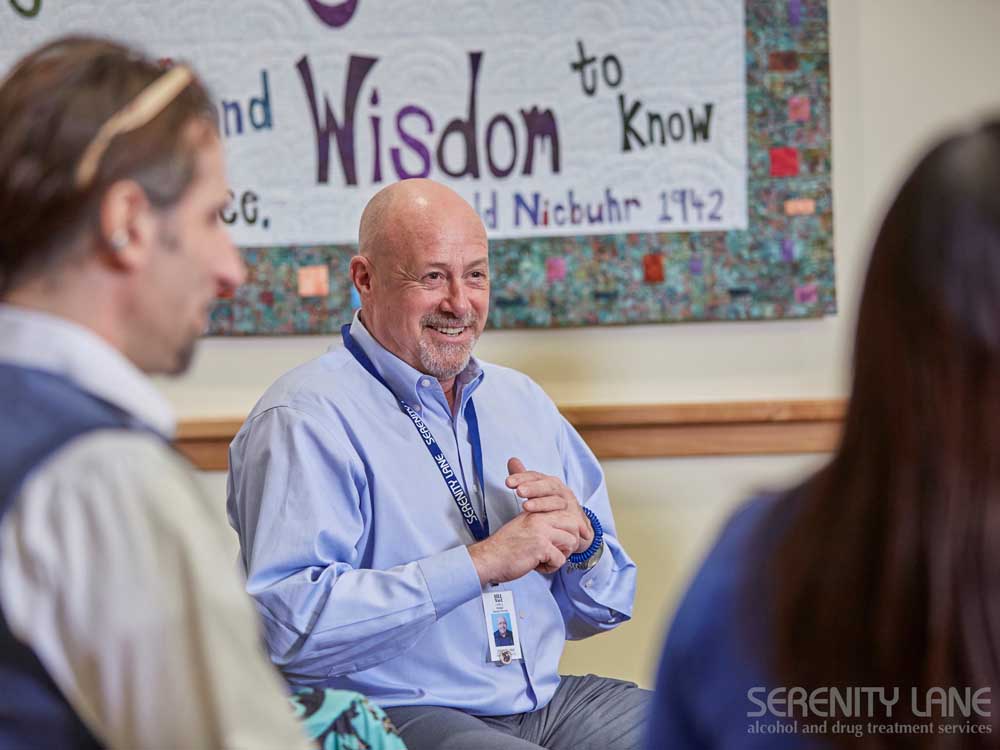Sponsored Content
More ways to beat addiction
Published 3:05 pm Thursday, July 13, 2017

- Photo courtesy of Serenity Lane of Bend
Last year the Surgeon General published a first-of-its-kind report which sounded the alarm, loud and clear, that the country was in the midst of a serious and historic crisis. The report, titled Facing Addiction in America, states that more than 27 million people in the United States use illicit drugs or abuse prescription drugs, and over 66 million people struggle with alcohol addiction.
Addiction is a problem touching every age group, every economic and every cultural group in our country. Young children are reporting increasing rates of early use of illicit drugs, alcohol and prescription pills and marijuana. A National Safety Council survey had seven out of 10 employers reporting that their workplaces have been impacted by the misuse of prescription drugs. It is estimated that the yearly economic impact of substance misuse is $249 billion for alcohol misuse and $193 billion for illicit drug use.
Yet access to care for addiction remains limited in many places – either due to lack of treatment facilities or economic barriers. In 2014, 22.5 million people in the United States needed treatment for an illicit drug or alcohol use problem but only 18% received any treatment – far below treatment receipt rates for other medical conditions, such as hypertension (77%), diabetes (73%) or major depression (71%).
We need to do better.
Serenity Lane is one of several treatment centers in Oregon working to keep up with the high demand for care and the increasingly complex nature of addiction. We have been treating patients for drug and alcohol addiction since 1973 and have seen the evolution of addiction over the last forty-four years.
This has led us to innovate and expand our treatment offerings to better tailor treatment that fits the individual. This includes:
• The Integrated Model of Treatment – On average, more than 70 percent of people with a substance abuse disorder will also report depression, anxiety, anger or trauma issues. These are called co-occurring disorders, and long-term recovery from addiction increases dramatically when a person begins addressing and treating these issues. Our patients receive care from a wrap-around team that includes a psychiatrist, addiction specialist and mental health counselors while working through issues in peer groups focused on their key issues.
• Extended Residential (ExSL) – Studies have shown that long-term outcomes for addiction-treatment improve when patients stay in treatment for thirty days or more. Our ExSL program is one of the fastest-growing and most popular programs that we offer. Patients who are relapse prone benefit from the opportunity to build a foundation in recovery while in a therapeutic community setting – where they have more autonomy and responsibility within a safe, structured setting.
• Addiction-Free Chronic Pain Management – Prescribing practices are changing. New legislation and changing opinions of the safety of these medications mean doctors are prescribing much smaller quantities and encouraging patients with chronic pain to seek non-pharmacological pain management treatments. This includes movement therapy, time in a therapeutic warm-water pool, acupuncture, massage and yoga. We bring our chronic pain specialists to our outpatient offices and have begun offering more yoga and seeking partnerships with local providers to help patients build a long-term plan to build strength and alleviate their chronic pain.
• Young Adults’ Program – We treat a patient population that ranges in age but in the last five years we have seen an increase in young adults seeking help earlier in their addiction. Many of these younger patients (ages 18-24) have been in treatment multiple times and report using a variety of substances, usually including opiates and benzodiazepines. The Young Adults’ Program involves a higher level of intensity, focusing on adjusting behavior through increased accountability and impulse control.
The most important part of dealing with addiction is making a start. If you or someone you care about is struggling with addiction, there is help. There are all kinds of programs offering multiple levels of care. The key is just to begin the process by asking for help. To learn more, call Serenity Lane to schedule a free and confidential consultation with an addiction specialist. To learn more about our services in Bend visit us at www.SerenityLane.org/Bend.






